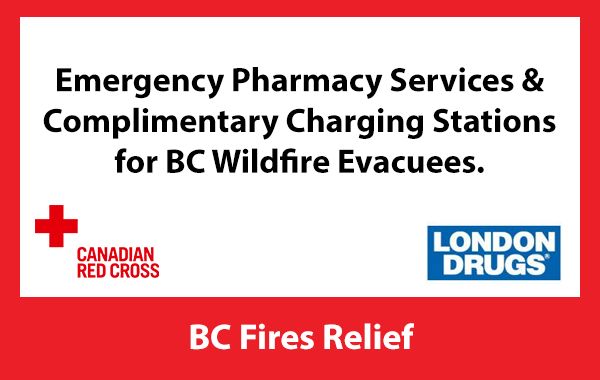Forest fires can be an inevitable part of living in Western Canada. The information below provides tips to reduce your personal health risk, as well as contact numbers to report a forest fire in each Western Canadian province.
Air Quality
The Ministry of Environment to monitors air quality impact due to wildfires across the province. For the most up to date conditions and a list of active advisories for BC, please visit: www.bcairquality.ca
- Current air quality data by region – B.C.
- Current air advisories – B.C.
- Current air quality health index – Alberta
- Current air advisories – Alberta
- Current air quality index – Saskatchewan
- Current air quality index – Manitoba
Tips to reduce personal risk:
Smoke can affect each person differently, based on their health, age, and exposure.
People with heart or lung conditions may be more sensitive to the effects of smoke and should watch for any change in symptoms that may be due to smoke exposure. If you notice any symptoms, take steps to reduce your exposure to smoke and if necessary see a physician. People with symptoms should go to their health care provider, walk-in clinic or emergency department depending on the severity of symptoms.
- Residents with asthma, COPD or other chronic illness should activate their asthma, respiratory or personal care plan.
- Use common sense regarding outdoor physical activity – if your breathing becomes difficult or uncomfortable, stop or reduce the activity.
- Stay cool and drink plenty of fluids.
- Smoke levels may be lower indoors, however levels of smoke particles will still be increased. If you stay indoors, be aware of your symptoms.
- Commercially available HEPA (high-efficiency particulate air) filters can further reduce poor indoor air quality near the device.
- Reduce indoor pollution sources such as smoking or burning other materials.
- Consider visiting a location like a shopping mall with cooler filtered air. Keep in mind that staying indoors may help you stay cool and provide some relief from the smoke, however, many air conditioning systems do not filter the air or improve indoor air quality.
- You may be able to reduce your exposure to smoke by moving to cleaner air. Conditions can vary dramatically by area and elevation.
- Pay attention to local air quality reports; air quality may be poor even though smoke may not be visible.
- Maintaining good overall health is a good way to prevent health effects resulting from short-term exposure to air pollution.
Report a Wildfire
In B.C. call 1 800 663-5555 or *5555 from a cell phone.
In Alberta call 310-FIRE.
In Saskatchewan call 1-800-667-9660.
In Manitoba call 1-800-782-0076.
Information from the public is crucial to ensuring wildfires are responded to as soon as possible.
When reporting a forest fire, any information you can provide is helpful, however, you can expect the emergency call-taker to ask for details about the fire, such as;
- Location
i.e. Where is the fire? How far up the hillside? - Size
e.g. Metres? Hectares? Size of a house? Size of a football field? - Rate of spread
i.e. How quickly is the fire spreading? - Fuel
i.e. What is burning? Grass, bushes, trees? - Smoke/flames
i.e. What colour is the smoke? Are flames visible? - Threat
i.e. Are there any people or buildings at risk? - Action
i.e. Is anyone fighting the fire?
Some information for this post sourced from:
- http://www2.gov.bc.ca/gov/content/safety/wildfire-status/wildfire-situation




 Dubbed as the “silent killer,” hypertension or high blood pressure is a growing health issue in Canada. Almost a quarter of Canadian adults are living with the condition which is a major risk factor for cardiovascular disease, kidney failure and death.1
Dubbed as the “silent killer,” hypertension or high blood pressure is a growing health issue in Canada. Almost a quarter of Canadian adults are living with the condition which is a major risk factor for cardiovascular disease, kidney failure and death.1
